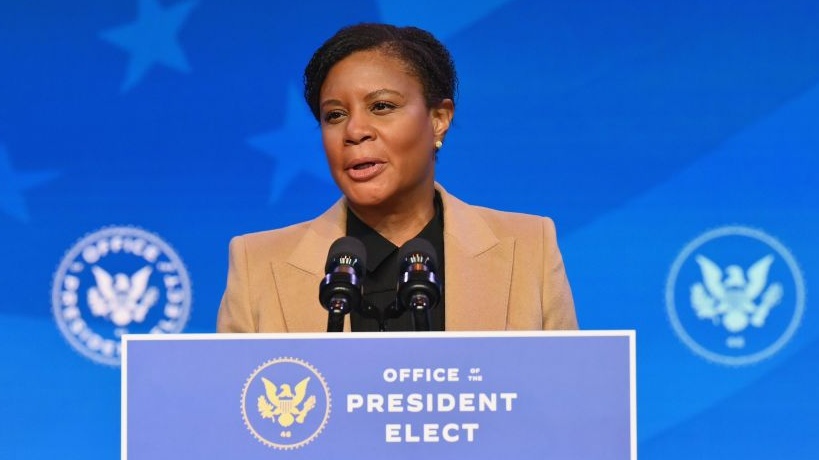President-elect Joe Biden announced his appointees to the Office of Science and Technology Policy (OSTP) on Friday. The office will “play a key role in shaping America’s future — and will prepare us to lead the world in the 21st century and beyond," according to a statement from the Biden-Harris transition team.
“Science will always be at the forefront of my administration — and these world-renowned scientists will ensure everything we do is grounded in science, facts and the truth,” Biden said, according to the statement. "Their trusted guidance will be essential as we come together to end this pandemic, bring our economy back and pursue breakthroughs to improve the quality of life of all Americans. Their insights will help America chart a brighter future, and I am grateful they answered the call to serve.”
As Biden continues his commitment to diversifying the White House, one appointee stands out in particular.
Alonda Nelson, Ph.D. will serve as the OSTP’s deputy director for Science and Society. Nelson’s expertise in the fields of science, technology, social inequality and race will help align the incoming president’s vision of “confronting some of the biggest crises and challenges of our time, from climate change and the impact of technology on society to pandemics, racial inequity and the current historic economic downturn.”
The distinguished scholar spoke of the social and racial connections to science and technology during the televised ceremony on C-Span.
“I am deeply grateful that I will have the opportunity to lend my own experience and expertise in public service,” she said. “For an academic whose work stands at the intersection of technology, science, and our social fabric – there is no mistaking the power and meaning of the moment we are living through today.”
Nelson further expounded on the intersectionalities regarding science concerning artificial intelligence.
“As a Black woman researcher, I am keenly aware of those who are missing from these rooms,” Nelson said. “I believe we have a responsibility to work together to make sure that our science and technology reflects us, and when it does that, it reflects all of us… that it reflects who we truly are together.”
Nelson’s illustrious career and in-depth knowledge have allowed her to contribute to discussions on national policies within the scientific community, according to her biography. She has been a visiting professor and fellow at the Max Planck Institute for the History of Science, the Bayreuth Academy of Advanced African Studies and the Bavarian Academy.
Her research has been lauded by the Ford Foundation, the Andrew W. Mellon Foundation, the Alfred P. Sloan Foundation and the National Science Foundation.
